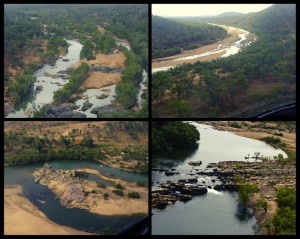 The Burdekin River belongs to all of us
The Burdekin River belongs to all of us
In 2020 the North Queensland Conservation Council (NQCC) began a dialogue with a wide range of stakeholders (irrigators, regional councils, farmers, fishers and scientists), looking for alternatives that would produce better outcomes for both stakeholders and the environment, than building yet more dams on this mighty river.
The following media release, and attached images (copyright NQCC), are reprinted with permission. You can also read more here on NQCC’s website.
The North Queensland Conservation Council (NQCC) is on a mission to ensure that the Burdekin River can continue to support North Queenslanders for generations to come.
NQCC is working to explore and showcase the unique features of the Burdekin River, to encourage North Queenslanders to better appreciate this natural wonder. They are also engaging with local scientists to understand how the river will behave under different scenarios and identify what is needed to protect it.
The Burdekin is one of Australia’s largest rivers and is an iconic feature of the North Queensland landscape. It supports a range of agricultural, recreational and cultural activities, but its future depends on how well it is managed here and now.
The allocation of water to projects and stakeholders is determined by the Burdekin Basin Water Plan, which is due for review in the next few years. NQCC hopes that the reviewed plan will outline a sustainable future that has ecological, social and economic benefits for people, communities and nature.
“It is important that the Burdekin Basin Water Plan reflects the current and future needs of all North Queenslanders in a way that is innovative and fair,” said Crystal Falknau, NQCC’s Coordinator. “All major projects proposed for the Burdekin Basin not yet considered in the plan should be put on hold until the review is complete, to ensure the best long-term outcomes.”
NQCC is calling on the State and Federal governments to support the modernisation of irrigation and farming practices to future-proof the region’s agricultural industry, while allowing the Upper Burdekin to flow freely, supporting recreation, cultural connection and conservation.
“This remarkable river belongs to all of us, and its future affects us all,” said Ms Falknau. “We know how important it is to leave future generations with a healthy river, and not the heartache of another Murray-Darling catastrophe.”
NB Copyright of all images in this post resides with the photographers. Pease contact us for permission to use.




